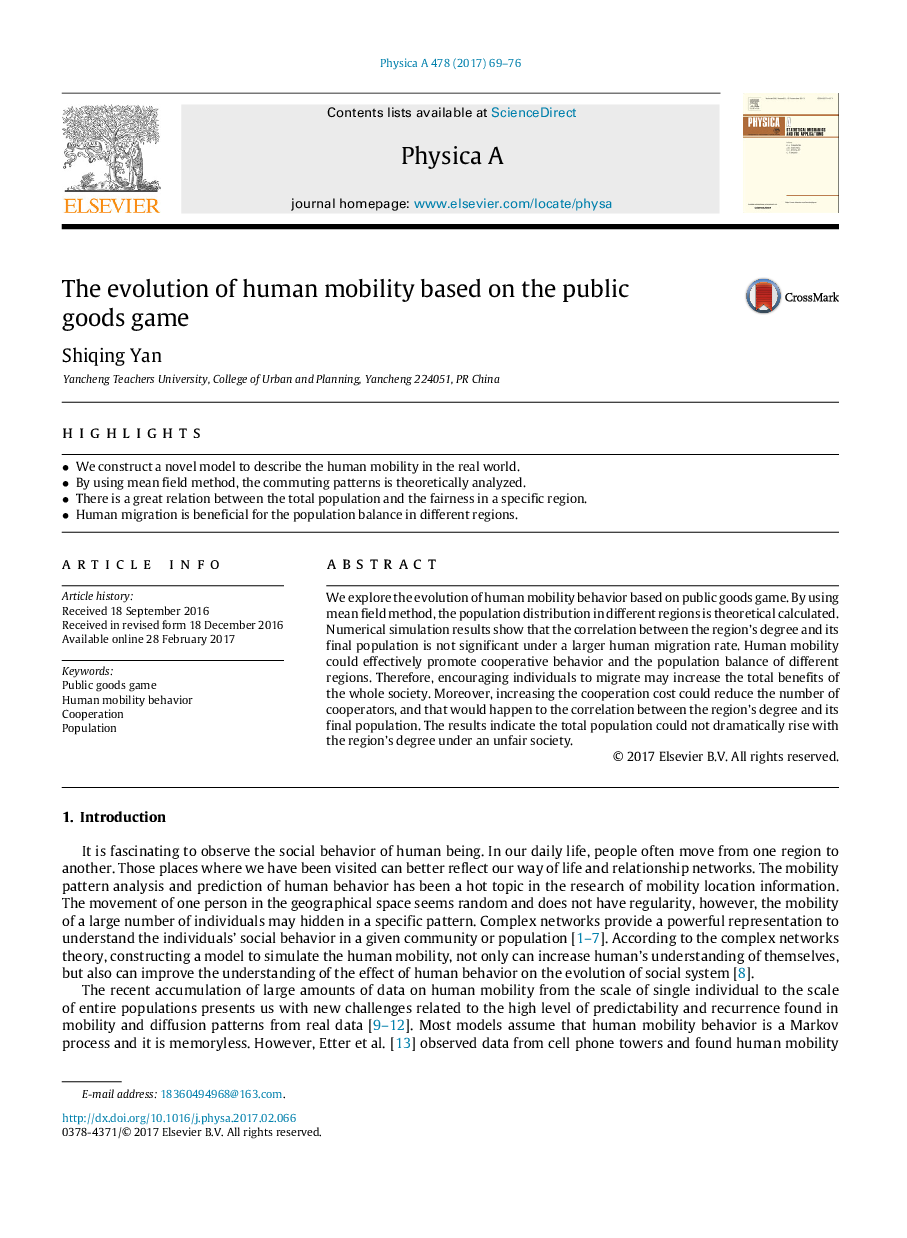| Article ID | Journal | Published Year | Pages | File Type |
|---|---|---|---|---|
| 5103055 | Physica A: Statistical Mechanics and its Applications | 2017 | 8 Pages |
Abstract
We explore the evolution of human mobility behavior based on public goods game. By using mean field method, the population distribution in different regions is theoretical calculated. Numerical simulation results show that the correlation between the region's degree and its final population is not significant under a larger human migration rate. Human mobility could effectively promote cooperative behavior and the population balance of different regions. Therefore, encouraging individuals to migrate may increase the total benefits of the whole society. Moreover, increasing the cooperation cost could reduce the number of cooperators, and that would happen to the correlation between the region's degree and its final population. The results indicate the total population could not dramatically rise with the region's degree under an unfair society.
Related Topics
Physical Sciences and Engineering
Mathematics
Mathematical Physics
Authors
Shiqing Yan,
